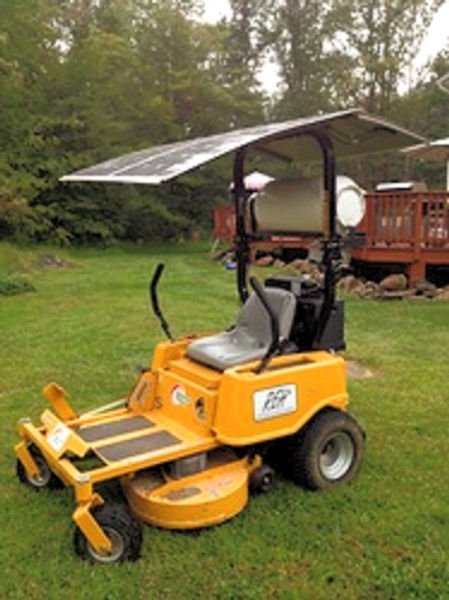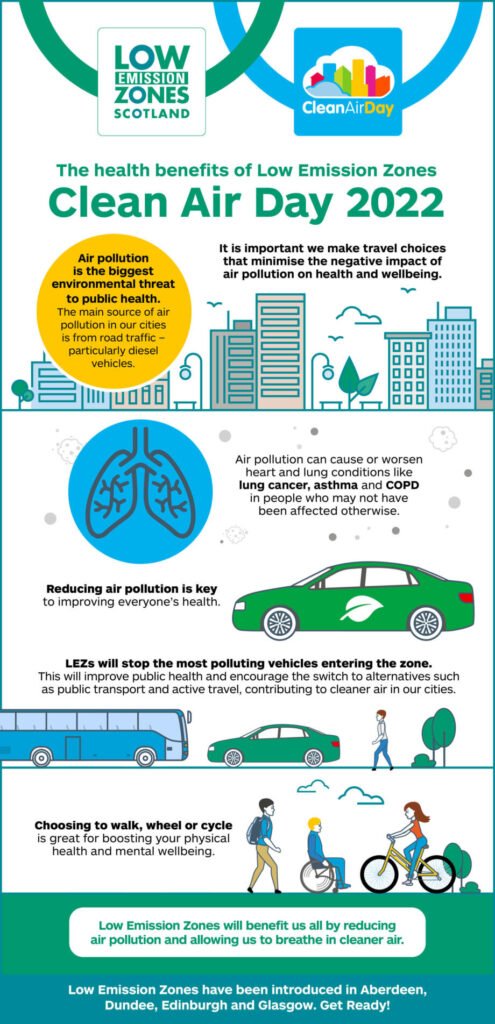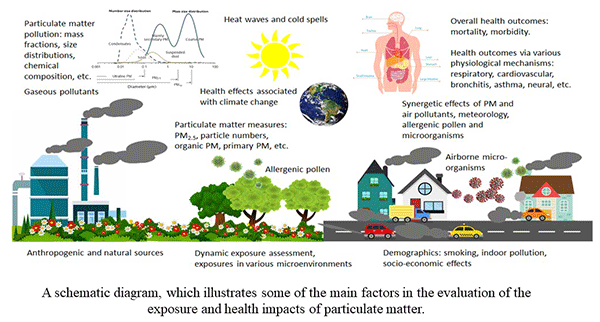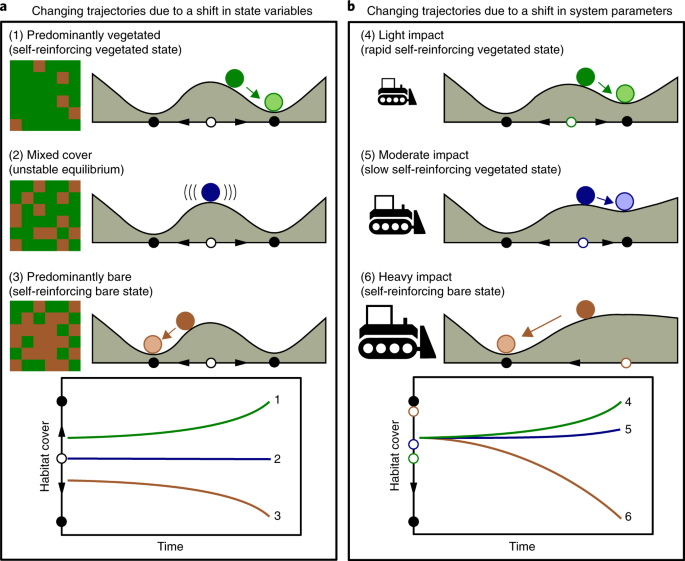If you’re tired of the noise, fumes, and constant refueling that come with traditional gasoline-powered lawn mowers, then get ready to embrace a greener and more efficient way of landscaping. The era of long-lasting hydrogen fuel cell lawn mowers has arrived, and it’s revolutionizing the world of green gardening. These innovative machines offer a cleaner alternative to maintaining your lawns, providing a quiet and eco-friendly solution that not only beautifies your yard but also reduces your carbon footprint. Say goodbye to the hassle of gasoline and hello to a brighter, cleaner future with hydrogen fuel cell lawn mowers.

This image is property of static.wixstatic.com.
Advantages of Hydrogen Fuel Cell Lawn Mowers
Emission-free Operation
Hydrogen fuel cell lawn mowers offer the significant advantage of emission-free operation, making them an environmentally friendly choice for green gardening enthusiasts. Unlike traditional gasoline-powered mowers that emit harmful pollutants and contribute to air pollution, hydrogen mowers produce zero emissions. This means that you can mow your lawn without worrying about polluting the air or contributing to climate change.
Reduced Noise Pollution
Another notable advantage of hydrogen fuel cell lawn mowers is their reduced noise pollution. As opposed to their gasoline-powered counterparts, which are known for their loud and bothersome operation, hydrogen mowers operate silently. This is particularly beneficial for those living in urban areas or close-knit neighborhoods, as it eliminates the disturbance caused by the noisy rumble of traditional mowers. Not only will you enjoy a peaceful mowing experience, but your neighbors will also appreciate the reduced noise levels.
Longer Run Time
Hydrogen fuel cell lawn mowers offer a longer run time compared to traditional gasoline-powered mowers. This means you can complete more mowing tasks without frequent refueling or interruption. Hydrogen fuel cells provide a consistent and steady supply of electricity, ensuring that you can efficiently maintain your lawn without worrying about running out of power mid-task. With a longer run time, you can save time and energy by completing your mowing duties in a single session.
Quick Refueling
Hydrogen fuel cell lawn mowers boast the advantage of quick refueling. Unlike electric battery-powered mowers that can take hours to recharge, refueling a hydrogen mower is a fast and convenient process. Hydrogen refueling stations can replenish the fuel cells within minutes, allowing you to quickly get back to your gardening tasks without prolonged downtime. This convenience makes hydrogen mowers ideal for those who prioritize efficiency and productivity in their gardening routines.
Low Maintenance
Hydrogen fuel cell lawn mowers require minimal maintenance compared to their gasoline-powered counterparts. Traditional mowers often necessitate regular oil changes, spark plug replacements, and air filter cleanings. However, hydrogen mowers have fewer moving parts and, therefore, require less maintenance. This translates to decreased maintenance costs and fewer trips to the repair shop. By opting for a hydrogen mower, you can enjoy the benefits of spending less time and money on maintenance tasks, allowing you to focus more on tending to your garden.
Cost-effective in the Long Run
Although the upfront costs of hydrogen fuel cell lawn mowers may be slightly higher compared to traditional gas mowers, they prove to be cost-effective in the long run. With reduced maintenance requirements and the elimination of fuel costs associated with gasoline mowers, hydrogen mowers can result in significant savings over time. Additionally, as more advancements are made in fuel cell technology and demand for hydrogen-powered equipment increases, the cost of hydrogen mowers is likely to decrease, making them an even more economically viable option.
Versatility and Power
Hydrogen fuel cell lawn mowers offer both versatility and power to meet your gardening needs. They provide sufficient power to tackle various lawn types and terrains, ensuring a clean and precise cut every time. Whether you have a small residential garden or a larger commercial space, hydrogen mowers can handle the job effectively. Furthermore, the versatility of these mowers extends to their ability to easily switch between different attachments and accessories, allowing for additional gardening tasks such as leaf blowing and snow clearing.
Environmental Benefits
Opting for hydrogen fuel cell lawn mowers comes with numerous environmental benefits. By choosing emission-free operation, you are actively reducing air pollution and minimizing your carbon footprint. The absence of harmful pollutants, such as carbon dioxide and nitrogen oxides, protects both the environment and human health. Additionally, hydrogen mowers contribute to the conservation of natural resources by reducing reliance on finite fossil fuels. Choosing to embrace these eco-friendly alternatives demonstrates your commitment to environmental stewardship and sustainable gardening practices.
Improved Safety
Hydrogen fuel cell lawn mowers prioritize safety in their design and operation. Unlike gasoline mowers that require flammable fuels and pose a higher risk of fire hazards, hydrogen mowers utilize non-combustible hydrogen gas as their fuel source. This significantly reduces the risk of accidental fires or explosions during refueling or operation. Moreover, the elimination of gasoline fumes minimizes the inhalation of harmful gases, creating a safer environment for both the operator and surrounding individuals, including children and pets.
Reduced Carbon Footprint
Reducing our carbon footprint is of utmost importance in today’s world, and hydrogen fuel cell lawn mowers offer a viable solution. By transitioning from traditional gasoline mowers to hydrogen mowers, you can significantly reduce your carbon emissions. As hydrogen only produces water vapor when used as a fuel, it eliminates the release of carbon dioxide and other greenhouse gases. As a result, you are actively contributing to climate change mitigation and pushing towards a more sustainable and greener future.
Hydrogen Fuel Cell Technology
Explanation of Fuel Cells
Fuel cells are devices that convert chemical energy, typically hydrogen or hydrocarbons, directly into electrical energy through an electrochemical reaction. They operate based on the principle of electrolysis, where a chemical reaction occurs at two electrodes immersed in an electrolyte solution. Fuel cells provide a clean and efficient energy alternative to traditional combustion engines, offering improved environmental performance and energy conversion efficiency.
Functioning of Hydrogen Fuel Cells
Hydrogen fuel cells function by oxidizing hydrogen at the anode (negative electrode) while simultaneously reducing oxygen to form water at the cathode (positive electrode). This results in the generation of electricity and the release of heat and water vapor as byproducts. The electrical energy produced by the fuel cell can be utilized to power various devices and equipment, including lawn mowers.
Conversion of Chemical Energy to Electrical Energy
The conversion of chemical energy to electrical energy in hydrogen fuel cells is made possible by the movement of ions through an electrolyte. Hydrogen molecules flow into the cell at the anode, where they interact with a catalyst that facilitates the separation of hydrogen ions (protons) and electrons. The protons move through the electrolyte material, while the electrons are directed through an external circuit, generating an electrical current. At the cathode, oxygen ions combine with the protons and electrons to produce water.
Components of a Hydrogen Fuel Cell
Hydrogen fuel cells consist of several essential components, each playing a crucial role in the overall functioning of the cell. These components include the anode and cathode electrodes, separated by an electrolyte material, and various catalysts to facilitate the electrochemical reactions. Additionally, fuel cells require a mechanism to deliver hydrogen to the anode and oxygen (commonly from air) to the cathode, as well as systems to manage heat and water produced during operation.
Advancements in Fuel Cell Technology
Significant advancements have been made in fuel cell technology, leading to increased efficiency, durability, and affordability. Researchers and engineers continue to explore improvements in catalyst materials, electrolyte compositions, and overall cell design to enhance the performance and longevity of fuel cells. These advancements pave the way for the integration of fuel cell technology in various applications, including lawn mowers.
Integration in Lawn Mowers
Hydrogen fuel cell technology has been successfully integrated into lawn mowers, providing a cleaner and greener alternative to traditional gasoline-powered machines. Fuel cell lawn mowers utilize the electricity generated by the fuel cell to power an electric motor, which drives the cutting blades and propels the mower forward. This innovative integration combines the benefits of fuel cell technology with the convenience and effectiveness of electric lawn mowers, resulting in a revolutionary solution for green gardening.

This image is property of i.ytimg.com.
Hydrogen Production and Refueling
Hydrogen Generation Methods
Hydrogen can be produced using various methods, each with its own advantages and limitations. Common methods of hydrogen production include natural gas reforming, steam methane reforming, electrolysis, and biomass gasification. The chosen method depends on the availability of feedstock, environmental considerations, and economic feasibility.
Electrolysis Process
Electrolysis is a widely used method for hydrogen production and involves the splitting of water molecules into hydrogen and oxygen using an electrical current. Through the application of electricity, water undergoes a chemical reaction that separates it into its constituent elements. This process offers a clean and sustainable means of hydrogen production, particularly when renewable energy sources power the electrolysis process.
Water Splitting Technologies
Water splitting technologies, such as advanced electrolysis and photoelectrochemical water splitting, offer efficient ways to produce hydrogen. Advanced electrolysis techniques, such as polymer electrolyte membrane (PEM) electrolysis and solid oxide electrolysis cells (SOECs), provide high conversion efficiencies and rapid response times. Photoelectrochemical water splitting utilizes light energy to drive the electrolysis reaction and has the potential for scalable and sustainable hydrogen production.
On-demand Hydrogen Generation
On-demand hydrogen generation allows for the production of hydrogen at the point of use, eliminating the need for large-scale and centralized hydrogen production facilities. By utilizing portable electrolysis systems or small-scale hydrogen generators, it becomes possible to generate hydrogen as and when it is required. This approach simplifies hydrogen storage and distribution, making it more accessible for various applications, including refueling hydrogen mowers.
Fueling Infrastructure
Establishing a robust fueling infrastructure is essential for widespread adoption of hydrogen fuel cell lawn mowers. Hydrogen refueling stations, similar to gasoline stations, are required to provide easy access to fuel for users. These stations store and dispense hydrogen gas, ensuring a reliable supply for fueling hydrogen mowers. As with any developing technology, the initial infrastructure might be limited, but efforts are being made to expand the network and make hydrogen refueling more accessible.
Refueling Challenges and Solutions
While the development of hydrogen refueling infrastructure presents challenges, solutions are being implemented to overcome them. One of the key challenges is the cost and availability of hydrogen. However, advancements in hydrogen production methods and economies of scale are driving down the cost, making it more affordable. Furthermore, collaborations between governments, energy companies, and technology developers are facilitating the establishment of refueling networks, ensuring a convenient and widespread coverage of hydrogen refueling stations.
Comparison with Traditional Gasoline-Powered Lawn Mowers
Emissions and Pollution
When comparing hydrogen fuel cell lawn mowers with their gasoline-powered counterparts, the environmental benefits become evident. Traditional gas mowers emit harmful pollutants, including carbon dioxide, nitrogen oxides, and volatile organic compounds, contributing to air pollution and climate change. In contrast, hydrogen mowers produce zero emissions, providing a cleaner and greener solution for those committed to reducing their environmental impact.
Noise Levels
Gasoline-powered mowers are notorious for their loud operation, producing high noise levels that can disturb both the operator and surrounding individuals. Hydrogen fuel cell mowers, on the other hand, operate silently, significantly reducing noise pollution. The absence of noise not only enhances the overall mowing experience but also contributes to a quieter and more peaceful environment, benefiting both you and your neighbors.
Fuel Efficiency
Hydrogen fuel cell lawn mowers offer superior fuel efficiency when compared to traditional gas mowers. The conversion of hydrogen into electricity within the fuel cell is highly efficient, allowing hydrogen mowers to achieve longer run times and operate on less fuel. Additionally, hydrogen refueling stations are designed to dispense only the required amount of hydrogen, eliminating any wastage and improving overall efficiency.
Operational Costs
Although the upfront cost of hydrogen fuel cell mowers may be slightly higher, they offer long-term cost savings. Gasoline mowers require regular fuel purchases, which can accumulate significant expenses over time. In contrast, hydrogen mowers eliminate the need for gasoline, resulting in reduced operational costs in the long run. With advancements in hydrogen production and distribution, the price of hydrogen is expected to further decrease, making hydrogen mowers even more cost-effective.
Maintenance Requirements
Hydrogen fuel cell lawn mowers require less maintenance compared to gasoline-powered mowers. Traditional mowers need regular oil changes, filter replacements, and spark plug cleanings, adding to the overall maintenance costs and time investment. Conversely, hydrogen mowers have fewer moving parts and do not require oil changes or spark plug replacements. This reduces maintenance expenses and allows you to spend more time enjoying your garden rather than maintaining your equipment.
Durability and Lifespan
Hydrogen fuel cell lawn mowers exhibit excellent durability and longevity, ensuring long-term performance and reliability. While traditional gas mowers may experience wear and tear due to the combustion engine’s mechanical components, hydrogen mowers have fewer moving parts and, therefore, encounter fewer mechanical failures. This enhanced durability extends the mower’s lifespan, saving you money on replacement costs and reducing waste generated from disposing of old equipment.
Performance and Power
Hydrogen fuel cell lawn mowers offer comparable performance and power to traditional gas mowers. The electric motors powered by the fuel cells provide sufficient torque and cutting power to tackle different lawn types and grass heights. Additionally, the consistent power supply from the fuel cell allows for consistent and smooth operation, ensuring a clean and uniform cut throughout your entire mowing session. Whether you have a small residential garden or a larger commercial space, hydrogen mowers deliver the performance you need.

This image is property of ars.els-cdn.com.
Market Trends and Availability
Current Market Landscape
The market for hydrogen fuel cell lawn mowers is still in its early stages but is witnessing steady growth. As more individuals and businesses recognize the environmental and operational benefits of hydrogen mowers, the demand for these innovative machines continues to increase. At present, the market is primarily dominated by a few manufacturers, but competition and product availability are expected to grow in the coming years.
Hydrogen-Powered Lawn Mower Models
Several manufacturers have already introduced hydrogen-powered lawn mowers into the market. These models combine fuel cell technology with cutting-edge design and functionality, providing users with an eco-friendly and efficient alternative to traditional mowers. These mowers are available in various sizes and power ratings, catering to both residential and commercial applications.
Advancements in Hydrogen Fuel Cell Lawn Mower Technology
Advancements in hydrogen fuel cell technology are constantly being incorporated into lawn mowers, making them even more efficient, reliable, and user-friendly. These advancements may include improved fuel cell efficiency, longer run times, faster refueling times, and enhanced safety features. As the technology continues to evolve, the market can anticipate further developments that will enhance the overall performance and attractiveness of hydrogen mowers.
Costs and Affordability
While hydrogen fuel cell lawn mowers may initially have a slightly higher cost compared to their gasoline-powered counterparts, the long-term affordability is becoming increasingly favorable. As the demand for hydrogen mowers grows and manufacturing volume increases, economies of scale come into play, driving down the production costs. Additionally, advancements in hydrogen production methods and increased accessibility to hydrogen refueling stations are expected to further reduce costs in the coming years.
Availability and Accessibility
The availability of hydrogen fuel cell lawn mowers varies depending on the geographical location and market penetration. Initially, availability may be limited to regions with developed hydrogen infrastructure and a higher demand for environmentally friendly gardening equipment. However, with the growing awareness and acceptance of hydrogen technology, the accessibility of hydrogen mowers is expected to expand, making them more readily available to consumers globally.
Future Growth Prospects
The future growth prospects for hydrogen fuel cell lawn mowers are promising. The increasing emphasis on environmental sustainability and the adoption of clean technologies will drive the demand for hydrogen mowers. Additionally, technological advancements, lowering production costs, and expanded fueling infrastructure will contribute to the widespread acceptance and popularity of hydrogen mowers. With the ongoing focus on green gardening practices, the market for hydrogen mowers is expected to experience significant growth in the coming years.
Application in Green Gardening
Sustainable Landscaping Practices
Hydrogen fuel cell lawn mowers align perfectly with sustainable landscaping practices. By opting for emission-free and quieter operation, hydrogen mowers enable gardeners to maintain their lawns while minimizing their environmental impact. Additionally, the reduced noise levels contribute to a more serene and enjoyable outdoor environment that benefits both individuals and local wildlife.
Impact on Gardening Industry
The introduction of hydrogen fuel cell lawn mowers has the potential to revolutionize the gardening industry. As more consumers become aware of the environmental benefits and operational advantages of hydrogen mowers, their demand is expected to increase. This shift in consumer preference will drive manufacturers and service providers to adapt to the market demands, further promoting the adoption of green technologies and sustainable gardening practices.
Benefits for Residential Gardens
Hydrogen fuel cell mowers offer numerous benefits for residential gardens. The absence of harmful emissions ensures a safer and healthier environment for homeowners and their families. Additionally, the reduced noise levels create a peaceful ambiance, enhancing the overall outdoor experience. With the longer run time and quick refueling capabilities, homeowners can efficiently maintain their lawns without interruption, allowing them to enjoy a well-manicured backyard space.
Commercial Applications
Hydrogen fuel cell lawn mowers find significant applications in commercial settings, such as parks, golf courses, and sports fields. Their emission-free operation and reduced noise levels make them ideal for maintaining these public spaces without causing disturbances to visitors. Moreover, the longer run time and quick refueling capabilities ensure uninterrupted operation, enabling groundskeepers to efficiently cover larger areas and meet the demands of commercial-grade landscaping.
Community Spaces and Parks
Community spaces and parks greatly benefit from the implementation of hydrogen fuel cell lawn mowers. By eliminating harmful emissions and reducing noise pollution, hydrogen mowers contribute to the creation of healthier and more enjoyable public spaces. Families, children, and pets can freely use these areas without the concern of inhaling toxic fumes or being disturbed by loud machinery. Furthermore, the use of hydrogen mowers promotes environmental consciousness and sets an example for responsible and sustainable landscape management.
Landscaping Companies and Service Providers
Hydrogen fuel cell lawn mowers provide landscaping companies and service providers with an opportunity to differentiate themselves in the market. By utilizing emission-free and quiet equipment, these companies can position themselves as environmentally conscious and forward-thinking. This can attract eco-minded clients who prioritize sustainable gardening practices and contribute to the overall perception of the landscaping industry as a leader in adopting green technologies.
Promoting Environmental Consciousness
The adoption of hydrogen fuel cell lawn mowers promotes environmental consciousness in both individuals and communities. By choosing eco-friendly alternatives, gardeners can actively contribute to environmental preservation and conservation efforts. Additionally, the reduced noise levels and improved air quality enhance the well-being and tranquility of outdoor spaces, fostering a deeper connection with nature and promoting a greater appreciation for the environment.

This image is property of opereviews.com.
Challenges and Limitations
Hydrogen Storage and Distribution
One of the challenges in adopting hydrogen fuel cell technology is the storage and distribution of hydrogen. Hydrogen is a light and highly flammable gas that requires specialized storage tanks and infrastructure. The development of a robust and safe hydrogen storage and distribution system is necessary to ensure a reliable supply of hydrogen for fueling mowers and other hydrogen-powered equipment.
Infrastructure Development
The establishment of an extensive hydrogen refueling infrastructure is crucial for the widespread adoption of hydrogen-powered lawn mowers. Currently, the number of hydrogen refueling stations is limited, making it challenging for users to access fuel conveniently. To overcome this limitation, investment in the development of hydrogen refueling infrastructure is necessary, ensuring a comprehensive network that provides easy accessibility for users.
Cost Considerations
While the costs associated with hydrogen fuel cell lawn mowers are decreasing, the initial investment may still be higher compared to traditional gas mowers. This could present a financial barrier for some consumers, especially those who prioritize affordability in their purchasing decisions. However, as production volumes increase and technology advancements continue, the cost gap is expected to narrow, making hydrogen mowers more accessible to a wider range of consumers.
Public Reception and Awareness
Public reception and awareness play a significant role in the adoption of hydrogen fuel cell lawn mowers. While the benefits of hydrogen technology are becoming increasingly recognized, there is still a need to educate and raise awareness among consumers about the advantages and potential applications of hydrogen mowers. By fostering greater understanding and acceptance, the transition towards hydrogen-powered gardening equipment can be accelerated.
Regulatory Frameworks
The development of supportive regulatory frameworks is essential to facilitate the growth and adoption of hydrogen fuel cell lawn mowers. Governments and regulatory bodies need to establish clear guidelines and standards for the safe operation, storage, and distribution of hydrogen. Additionally, the implementation of incentives and policies that encourage the use of clean technologies can accelerate the transition towards hydrogen-powered alternatives.
Safety Concerns
Ensuring the safety of hydrogen fuel cell lawn mowers is of paramount importance. While hydrogen is a safe fuel when handled properly, precautions must be taken to prevent leaks and minimize the risk of accidents. This includes training operators on safe handling and refueling procedures, implementing appropriate safety features in the mowers, and establishing industry-wide standards that prioritize safety and risk mitigation.
Scaling up for Mass Adoption
The scalability of hydrogen fuel cell technology is a challenge that needs to be addressed for mass adoption of hydrogen mowers. As the demand for hydrogen mowers increases, manufacturers must be able to scale up production to meet the market requirements. This requires investments in manufacturing capabilities and infrastructure, as well as the establishment of reliable supply chains for fuel cells and other essential components.
Case Studies and Success Stories
Real-life Implementations
Real-life implementations of hydrogen fuel cell lawn mowers have already demonstrated their viability and success. Several municipalities, institutions, and companies have adopted hydrogen mowers as part of their sustainable landscaping practices. These implementations serve as successful examples for others and highlight the positive impact of hydrogen mowers on the environment, noise levels, and overall lawn maintenance quality.
Benefits Experienced by Users
Users of hydrogen fuel cell lawn mowers have reported numerous benefits when compared to traditional gas mowers. These include the joy of emission-free mowing, reduced noise levels, extended run times, and lower operational costs in the long run. The environmental benefits and improved operator safety are also highly appreciated by users. Overall, the adoption of hydrogen mowers offers a positive and rewarding experience for gardeners.
Positive Customer Feedback
Customers who have made the switch to hydrogen fuel cell lawn mowers have provided positive feedback regarding their performance and environmental impact. They appreciate the clean operation, quietness, and convenience of refueling their mowers. Many highlight the reduced maintenance requirements and associated cost savings as significant advantages. Customers often express their satisfaction with being able to contribute to a greener future and the positive reactions they receive from neighbors and community members.
Professional Landscapers’ Perspectives
Professional landscapers who have incorporated hydrogen fuel cell lawn mowers into their business operations have shared their insights and experiences. They appreciate the reduced noise levels, as it allows them to work in residential areas without disturbing residents. The longer run times and quick refueling capabilities enable them to complete their tasks more efficiently, benefiting both their productivity and customer satisfaction. Professional landscapers also value the positive brand perception associated with using environmentally friendly equipment.
Environmental Impact Assessment
Environmental impact assessments of hydrogen fuel cell lawn mowers have consistently highlighted their positive contribution to reducing emissions and noise pollution. These assessments analyze the potential improvements in air quality, carbon footprint reduction, and noise reduction achieved by transitioning to hydrogen mowers. The findings reinforce the significant environmental benefits of hydrogen technology and motivate further adoption and implementation.

This image is property of i.ytimg.com.
Government Support and Initiatives
Incentives and Subsidies
Various governments around the world are providing incentives and subsidies to promote the adoption of clean and sustainable technologies, including hydrogen fuel cell lawn mowers. These incentives may take the form of financial support, tax breaks, or grants. The purpose of these initiatives is to accelerate the transition towards greener gardening practices and reward individuals and businesses for embracing environmentally friendly alternatives.
Policy Frameworks and Regulations
Governments play a crucial role in creating policy frameworks and regulations that support the development and adoption of hydrogen fuel cell lawn mowers. These frameworks establish standards for safe operation, storage, and distribution of hydrogen, ensuring compliance and mitigating any associated risks. By addressing these regulatory aspects, governments promote the growth of the hydrogen industry and encourage the widespread use of hydrogen technologies.
Research and Development Funding
Governments are investing in research and development initiatives focused on hydrogen fuel cell technology to accelerate its advancements. Funding programs are aimed at supporting research institutions, technology developers, and manufacturers in their pursuit of developing more efficient and cost-effective fuel cell systems. This funding enables the exploration of new materials, manufacturing processes, and system designs, facilitating continuous improvement and innovation in hydrogen technology.
Collaborations and Partnerships
Collaborations and partnerships between governments, research institutions, industry stakeholders, and technology developers are actively fostering the growth and adoption of hydrogen fuel cell lawn mowers. These collaborations facilitate knowledge sharing, technology transfer, and the establishment of common goals and strategies. By coming together, these stakeholders collectively drive innovation, address challenges, and promote the successful integration of hydrogen technology in the gardening industry.
Government-led Hydrogen Initiatives
Governments across the world are launching hydrogen initiatives to accelerate the development, deployment, and adoption of hydrogen technologies, including fuel cell lawn mowers. These initiatives often involve multi-sector collaborations and long-term strategies to support the growth of the hydrogen industry. By taking a proactive role, governments demonstrate their commitment to combatting climate change, reducing emissions, and promoting sustainable energy solutions.
Sustainable Energy Strategies
The inclusion of hydrogen fuel cell lawn mowers in national and regional sustainable energy strategies emphasizes the importance of this technology for achieving environmental goals. These strategies outline the key energy priorities and identify hydrogen as a critical component of the clean energy transition. By incorporating hydrogen technology into their sustainable energy strategies, governments signal their intent to support the widespread adoption of hydrogen fuel cell lawn mowers and other clean technologies.
Conclusion
The Future of Green Gardening
Hydrogen fuel cell lawn mowers hold immense potential to revolutionize green gardening practices. With their emission-free operation, reduced noise levels, and extended run times, hydrogen mowers offer a cleaner, quieter, and more efficient alternative to traditional gasoline-powered mowers. By leveraging the advancements in fuel cell technology, hydrogen mowers contribute to the creation of greener and more sustainable outdoor spaces.
Advantages for Both Individuals and the Environment
The advantages of hydrogen fuel cell lawn mowers are plentiful for both individuals and the environment. Gardeners enjoy the benefits of cleaner operation, reduced maintenance requirements, and long-term cost savings. The environmental impact is significant, with zero emissions, reduced noise pollution, and a smaller carbon footprint. Hydrogen mowers offer a win-win situation, allowing individuals to maintain their lawns while actively contributing to a healthier and more sustainable planet.
Overcoming Challenges and Limitations
While there are challenges associated with hydrogen fuel cell technology, ongoing research, technological advancements, and supportive government initiatives are overcoming these barriers. Addressing concerns related to hydrogen storage, infrastructure development, cost considerations, safety, and public awareness will further promote the widespread adoption and acceptance of hydrogen mowers. Collaboration among stakeholders is vital to ensure the successful integration of hydrogen technology in the gardening industry.
Call for Further Innovation and Adoption
To fully unlock the potential of hydrogen fuel cell lawn mowers, further innovation, and adoption are necessary. Continued research and development will enhance the efficiency, cost-effectiveness, and durability of fuel cell systems. Governments, industry leaders, and consumers must collectively embrace this clean technology and create a market demand that incentivizes further investment and advancement. By actively choosing hydrogen mowers, individuals and businesses contribute to a sustainable future, promoting green gardening practices and protecting our environment for generations to come.





